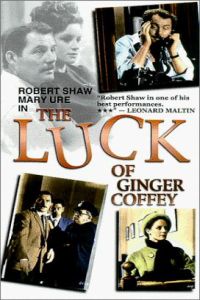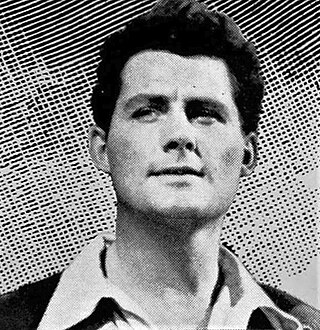
Robert Archibald Shaw was an English actor, novelist, playwright and screenwriter. Beginning his career in theatre, Shaw joined the Shakespeare Memorial Theatre after the Second World War and appeared in productions of Macbeth, Henry VIII, Cymbeline, and other Shakespeare plays. With the Old Vic company (1951–52), he continued primarily in Shakespearean roles. In 1959 he starred in a West End production of The Long and the Short and the Tall.

Irvin Kershner was an American director for film and television.

I'm All Right Jack is a 1959 British comedy film directed and produced by John and Roy Boulting from a script by Frank Harvey, John Boulting and Alan Hackney based on the 1958 novel Private Life by Alan Hackney.
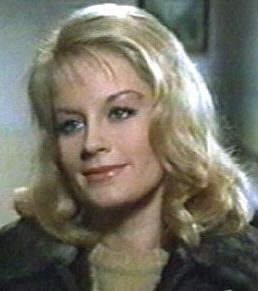
Eileen Mary Ure was a British actress. She was the second Scottish-born actress to be nominated for an Academy Award, for her role in the 1960 film Sons and Lovers.

Frank Radford "Budge" Crawley, was a Canadian film producer, cinematographer and director. Along with his wife Judith Crawley, he co-founded the production company Crawley Films in 1939.

Francis Bosley Crowther Jr. was an American journalist, writer, and film critic for The New York Times for 27 years. His work helped shape the careers of many actors, directors and screenwriters, though his reviews were criticized as unnecessarily harsh. Crowther was an advocate of foreign-language films in the 1950s and 1960s, particularly those of Roberto Rossellini, Vittorio De Sica, Ingmar Bergman, and Federico Fellini.

The Young Lions is a 1958 American epic World War II drama film directed by Edward Dmytryk and starring Marlon Brando, Montgomery Clift, and Dean Martin. It was made in black-and-white and CinemaScope and was theatrically released by 20th Century-Fox. The film is based on the 1948 novel of the same name by Irwin Shaw.
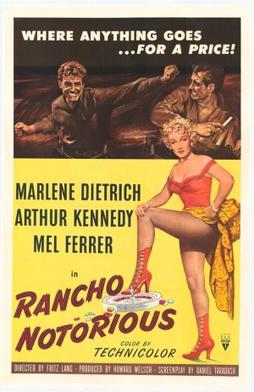
Rancho Notorious is a 1952 American Western film directed by Fritz Lang and starring Marlene Dietrich as the matron of a criminal hideout called Chuck-a-Luck, named after the game of chance referenced in the film. Arthur Kennedy and Mel Ferrer play rivals for her attention in this tale of frontier revenge.
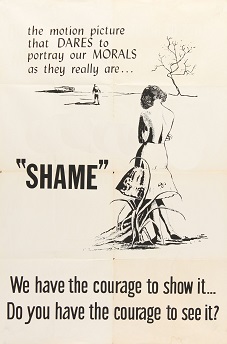
The Intruder, also known as I Hate Your Guts, Shame and The Stranger, is a 1962 American drama film directed and co-produced by Roger Corman and starring William Shatner. The story, adapted by Charles Beaumont from his own 1959 novel of the same name, depicts the machinations of a racist named Adam Cramer, who arrives in the fictitious small Southern town of Caxton in order to incite white townspeople to racial violence against black townspeople and court-ordered school integration.

We're Not Married! is a 1952 American anthology romantic comedy film directed by Edmund Goulding. It was released by 20th Century Fox.

Kitty Foyle, subtitled The Natural History of a Woman, is a 1940 drama film starring Ginger Rogers, Dennis Morgan, and James Craig, based on Christopher Morley's 1939 bestseller Kitty Foyle. Rogers won the Academy Award for Best Actress for her portrayal of the title character, and the dress she wore in the film became known as a Kitty Foyle dress.

Sons and Lovers is a 1960 British period drama film directed by Jack Cardiff and adapted by Gavin Lambert and T. E. B. Clarke from the semi-autobiographical 1913 novel of the same name by D. H. Lawrence. It stars Trevor Howard, Dean Stockwell, Wendy Hiller, Mary Ure, and Heather Sears.
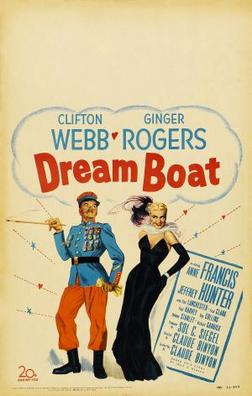
Dreamboat is a 1952 American comedy film directed by Claude Binyon and starring Clifton Webb, Ginger Rogers, Anne Francis and Jeffrey Hunter.
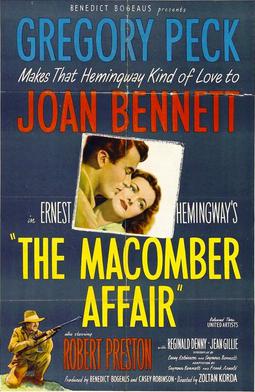
The Macomber Affair is a 1947 American adventure drama film starring Gregory Peck, Joan Bennett, and Robert Preston. Directed by Zoltan Korda and distributed by United Artists, it portrays a fatal love triangle set in British East Africa between a frustrated wife, a weak husband, and the professional hunter who comes between them.

The Second Time Around is a 1961 American CinemaScope Comedy Western film starring Debbie Reynolds as a widow who relocates her family from 1911 or 1912 New York to the Arizona Territory. It is based on the novel Star in the West by Richard Emery Roberts.
Home Movies: The Great Canadian Film Caper was a Canadian television documentary miniseries which aired on CBC Television in 1966.
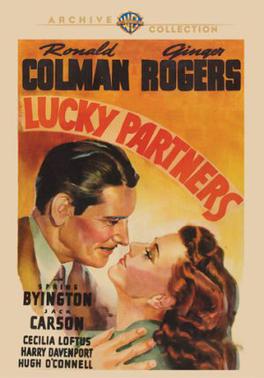
Lucky Partners is a 1940 American romantic comedy film starring Ronald Colman and Ginger Rogers. Directed by Lewis Milestone for RKO Radio Pictures, it is based on the 1935 Sacha Guitry film Good Luck. The picture was the only film pairing of Colman and Rogers, and Rogers' eleventh and final film written by Allan Scott.
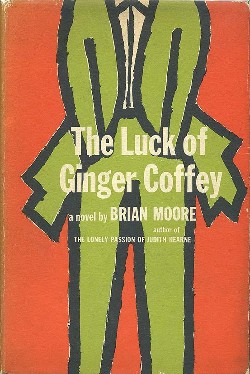
The Luck of Ginger Coffey, a novel by Northern Irish-Canadian writer Brian Moore, was published in 1960, in the United States by The Atlantic Monthly and in the United Kingdom by Andre Deutsch. In Canada, it received a Governor General's Award. The book was made into a film, directed by Irvin Kershner, and released in 1964. Robert Shaw starred in the title role.

Belle Le Grand is a 1951 American Western film directed by Allan Dwan and written by D.D. Beauchamp. The film stars Vera Ralston, John Carroll, William Ching, Hope Emerson, Grant Withers, Stephen Chase, John Qualen and Harry Morgan. The film was released on January 27, 1951, by Republic Pictures.
The 17th Canadian Film Awards were held on May 15, 1965 to honour achievements in Canadian film.
